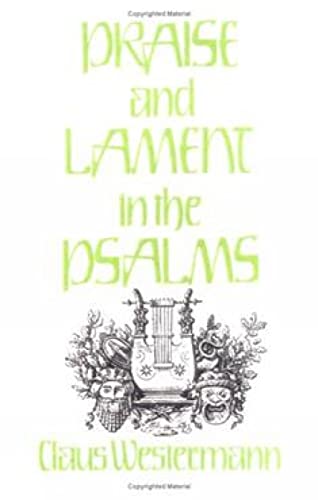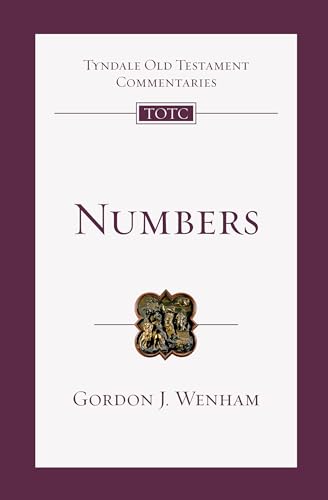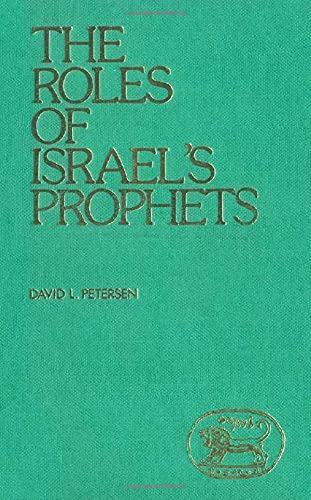Praise and Lament in the Psalms
Written by Claus Westermann Reviewed By David M. Howard, Jr.Recently, successive years have seen English translations of two important works by a standout figure in psalms studies. Westermann’s place in the field is firmly established, and he is that rare seminal thinker in biblical studies whose work retains a sense of warmth and devotion: his reader is constantly confronted with the Lord of history and Saviour of the world, as well as challenged to appropriate Israel’s worship and faith for him/herself.
Praise and Lament in the Psalms translates the German work of 1977, and includes Westermann’s major essay on The Praise of God in the Psalms (which first appeared in 1961; ET 1965) as well as four shorter ones, all previously published elsewhere. These include two on the lament, one on the formation of the Psalter, and one on the ‘re-presentation’ of history in the psalms.
Westermann’s contribution to the field is twofold: in the study of (1) the forms of the psalms, and (2) their Sitz im Leben. He begins by criticizing the standard classification of the psalms into four major types: individual and communal laments, individual thanksgivings, and hymns (communal praise or thanksgiving). He emphasizes that the Hebrew word usually translated ‘thanks’ more accurately describes a mode of praising. Praise can be directed to God himself (‘thou art …’ or ‘thou hast done’) or to others, telling about God (‘he is … or ‘he has done’). Praise is seen in two modes: ‘descriptive’ praise (which speaks of God’s majesty and grace in a summarizing, recapitulating, and descriptive manner’ (p. 118)) and ‘declarative’ praise (which praises God for specific actions of grace and deliverance in the immediate past, telling of (or ‘declaring’) God’s gracious acts). These correspond to what are usually called the hymn and the psalm of thanksgiving, respectively, and so it seems that Westermann’s contribution is one of redefinition rather than reclassification. The abiding value of his work here is in sharpening our understanding of the meaning of praise.
Westermann also devotes a great deal of attention to the lament. He sees the modes of man’s communication with God as one of only two types: praise or lament. All other categories (petition, intercession, historical reflection, etc.), in a technical sense, fall at one pole or the other. A significant contribution here is Westermann’s observation that the psalms of praise (which are far outnumbered by the lament psalms) are the point toward which the laments are moving, in that the latter almost invariably contain a vow to praise which is fulfilled in the psalms of praise) or some other expression of confidence in God’s ability and intention to save.
Westermann’s observation that praise is centred about God’s being and actions leads him to see the Sitz im Leben of praise in ordinary life. Praise is primarily a response to God. This conclusion about praise (and lament, as well) puts Westermann at odds with most modern scholars, who see the Sitz im Leben of the psalms in the cult. That is, for most, the psalms are compositions written first for use in temple worship and later ‘democratized’ for individual use; for Westermann, the reverse obtains: they were individual responses to God and then were appropriated for worship. Westermann says that the psalms are cultic only in the sense that worship permeated every area of life: ‘Therefore, the praise of God in Israel never became a cultic happening, separated from the rest of existence, in a separate realm, that had become independent of the history of the people and the individual. Rather it occupied a central place in the total life of the individual and the people before God, as for instance the concept of faith does for us’ (p. 155). Given this, Westermann is much less interested in re-creating ad nauseam the cultic events that may have lain behind particular psalms than he is in the message and meaning of the psalms for the individuals and nation of Israel.
The Psalms: Structure, Content and Message is the translation of a 1967 work intended for a popular audience, and presents the major conclusions of the above studies in readily accessible form. Westermann presents each category, includes exegesis of a sample psalm for each one, and adds chapters on creation, liturgical, royal, and enthronement psalms as well. This volume is much clearer, more concise, and better organized than the above, and is a good place to begin one’s reading of Westermann.
Evangelical students should realize as they read him that Westermann has a very different view of inspiration of Scripture than they do, and that he stands in the mainstream of critical scholarship on most issues. They should also realize that he emphasizes the prehistory of the text over its final form. (Thus his emphasis on the original Sitz im Leben being in ordinary life does not have to conflict with one which sees the Sitz im Leben of the final forms of the Psalms in the cult, for example.) Finally, they should be aware that he denies any predictive Messianic prophecy as it is understood by most evangelicals.
If these caveats are noted, students will find Westermann’s work to be creative, stimulating, and even of personal spiritual value. He presents a God who graciously acts in history and who hears his people. Worship of God is a living, integral part of life, and Westermann’s insights can make our own individual and corporate worship much richer if we let them.
David M. Howard, Jr.
David M. Howard, Jr.
Bethel Seminary, Bethel University
St. Paul, Minnesota, USA






